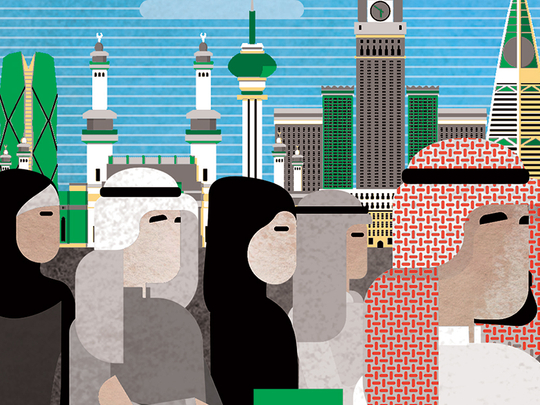
The year 2018 will be a year of major social changes for the Kingdom of Saudi Arabia. These changes are expected to dramatically change Saudi society as we once knew it.
To begin with, the feared Saudi religious police that once permeated every level of Saudi society has almost become a non-entity in most of the major cities, a fact that makes many happy but also distresses a few who still long for the days of religious control.
Their messages and exhortations of following a strict and unyielding interpretation of the religion has today been generally recognised as the fuel that has misguided some Saudi youth.
The arrival of young Crown Prince Mohammad Bin Salman in the Saudi leadership has provided the impetus to tackle what many have termed as a growing menace and an impediment to progress.
Many Saudi social scientists and intellectuals had privately grumbled that the powerful religious police was intent on taking the country back to the Stone Ages.
But Mohammad was astute enough to realise that none of his grand plans, such as Vision 2020 and Vision 2030, would take a foothold unless he dealt with this establishment head-on.
And he did.
By stripping them of most of their earlier acquired powers, he essentially left them dormant.
Wave of appreciation
The wave of appreciation that followed this singular act must have sent a strong signal to the Crown Prince that the country and the people were ready for change.
He interjected several revolutionary concepts to the society that had for the past three decades or so remained buried under layers of restrictions. People welcomed the moves as part of his vision to transform the kingdom.
Mohammad supported a newly-formed entertainment authority that has taken to staging concerts and comedy shows for an entertainment-starved Saudi audience that used to get its fill of culture and the arts by travelling to neighbouring Arab states.
No more, Mohammad vowed. We shall be as progressive as the rest of them was the message.
The bizarre obsession of extremists against the idea of free mingling of people from both genders was swiftly addressed when the government announced that men and women could attend together many of the entertainment fixtures that were being introduced.
This was followed by an announcement that starting this year, female residents of the country could attend sporting events, such as a football match, along with males in key stadiums across the metropolitan cities.
While it may have left many a cleric privately aghast and shell-shocked, it was yet another move widely appreciated by the public, the majority of whom are young.
This was soon followed by an announcement that the kingdom would issue licences for cinema halls to operate — a ban that had been in effect for decades and could be traced back to the rise of influence of clerics in the early 1980s, following a failed takeover attempt of the Holy Mosque in Makkah by a band of religious extremists.
The first theatres are expected to be ready by later next month and the public, by and large, is eagerly looking forward to this pleasant diversion.
Biggest of the barriers
Perhaps the biggest change introduced to Saudi society was the lifting of the ban on women driving. Come June, women will get behind the wheel.
Clerics had been successful for decades in enforcing a ban on women motorists.
This was by far the biggest of the barriers to fall, as Saudi Arabia had earlier carved a unique distinction of being the only country in the modern world not to grant their females citizens or residents the right to drive.
With Vision 2030 in mind and a youthful population by his side, Mohammad is set to tackle all previous impediments to Saudi progress to bring the country at par with developing nations.
He has begun by removing some of the previously installed taboos and there are expectations of more barriers to fall.
With such a vision, many in Saudi Arabia are hopeful that finally, the country will take its rightful place on the global stage.
Tariq A. Al Maeena is a Saudi socio-political commentator. He lives in Jeddah, Saudi Arabia. Twitter: @talmaeena.








